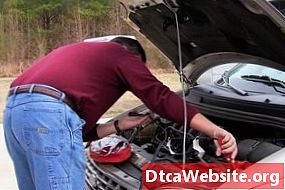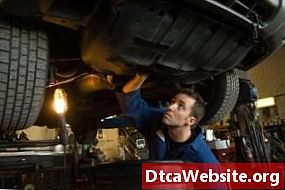
Contenu

"Engine knocking" is a term used to refer to a metallic sound in an engine. It may be a hollow knocking or a rattling sound. Engine knocking is often produced when pressure is applied to the accelerator. According to Repairpal.com, common reasons for engine knocking include improper combustion process, the engine is too hot, improper gasoline octane and internal mechanical problems. Additives exist which can help stop the knocking sound in engines suffering from combustion chamber deposits and improper gasoline octane.
Polyether Amine
Polyether Amine or PEA chemistry was patented by Chevron in the early 1980s. It can help clean a vehicles combustion chambers, reduce engine knocking and pinging, remove harmful sulfur deposit from gas gauge sensors and relieve cold-startup issues. Chevron uses PEA chemistry in its Techron Concentrate Plus. PEA chemistry can also be found in fuel system cleaners from STP, Gumout and Valvoline. Many auto dealerships also use PEA chemistry in fuel-injection cleanings.
Octane Booters
One common cause of engine knocking is the use of fuel with an octane lower than that recommended by the manufacturer. Octane boosters are sold as fuel additives to combat engine knocking. Older cars may also find higher octanes serve their aged systems to address engine knocking. Vehicle operators may consider using high pump octanes such as 93 to eliminate engine knocking.
Engine Carbon Cleaner
Carbon deposits that build up inside the engines combustion chamber can cause a knocking or pinging sound. It is usually loudest when the engine is accelerating or climbing an incline. Engine carbon cleaner loosens carbon deposits from the combustion chamber to reduce knocking. Engine carbon cleaner can be poured into the vehicles gas tank.
Ethanol
Many gasoline stations provide a blended fuel that is 90 percent gasoline and 10 percent ethanol. Ethanol or ethyl alcohol is fermented from sources of starch that include corn, wheat, grain sorghum, barley, potatoes and sugar crops such as sugar cane and sweet sorghum. Because of its high-octane number, it is used as an anti-knock agent in gasoline.


